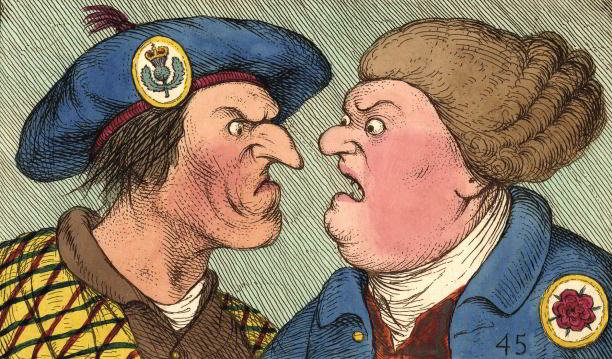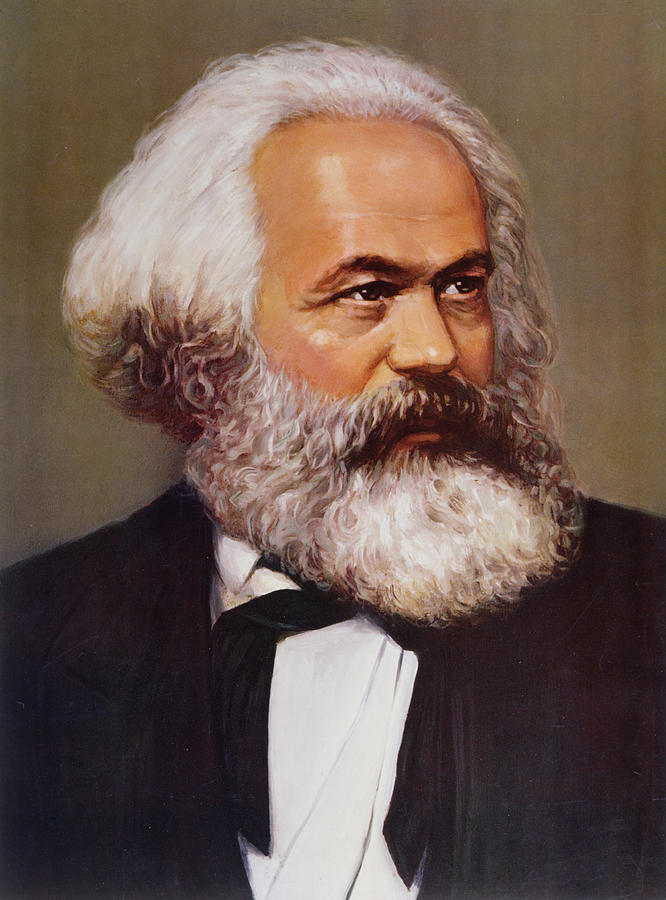Robert Henderson
The outcome of the Scottish independence referendum has resulted in the breaking of a particularly effective omerta within the British political classes, namely, that there should be no acknowledgement of the wilful damage done to English interests by the devolution settlement of the late 1990s which has excluded her from having a national political voice while Scotland, Wales and Northern Ireland were given such a voice and ever increasing devolved powers.
Having denied England her due for 16 years the Tory Party has suddenly embraced the idea constitutional equality with the rest of the UK with the necessary changes being made in tandem with the new powers so recklessly promised by Gordon Brown during the last days of the Referendum campaign. No matter that the Tory Party has had this sudden conversion to being the upholder of English interests because it is a way of marginalising the Labour Party through both threatening to remove the influence of its many non-English seat MPs; no matter that so far all that is proposed is English votes for English laws rather than an English Parliament; no matter that the Labour and LibDem leaders have rejected the idea. What matters is that the English devolution train has started to move and once moving it will be very difficult to stop.
Cameron’s “solution” to the constitutional imbalance
The morning after the NO in the Scottish independence referendum vote David Cameron proposed this:
“Just as the people of Scotland will have more power over their affairs, so it follows that the people of England, Wales and Northern Ireland must have a bigger say over theirs.
The rights of these voters need to be respected, preserved and enhanced as well.
It is absolutely right that a new and fair settlement for Scotland should be accompanied by a new and fair settlement that applies to all parts of our United Kingdom.
In Wales, there are proposals to give the Welsh Government and Assembly more powers.
And I want Wales to be at the heart of the debate on how to make our United Kingdom work for all our nations.
In Northern Ireland, we must work to ensure that the devolved institutions function effectively.
I have long believed that a crucial part missing from this national discussion is England.
We have heard the voice of Scotland – and now the millions of voices of England must also be heard.
The question of English votes for English laws – the so-called West Lothian question –requires a decisive answer.
So, just as Scotland will vote separately in the Scottish Parliament on their issues of tax, spending and welfare so too England, as well as Wales and Northern Ireland, should be able to vote on these issues and all this must take place in tandem with, and at the same pace as, the settlement for Scotland.”
Whether Cameron could deliver much of this in the seven months before the General Election is highly dubious, both on the grounds of time and the difficulty of getting agreement with the other major Westminster parties . Labour leader Ed Miliband has already refused to back the idea of linking English constitutional reform to the granting of extra powers to Scotland. This is for a crude political interest reason: without Labour MPs from outside of England the Labour Party would have no chance of forming a government in England for the foreseeable future. LibDem leader Nick Clegg has also refused to back Cameron’s proposal, but has said he would support the formation of an English Grand Committee to scrutinise and amend English-only legislation. However, this would still leave the UK parliament as it is present constructed with the final say which would include MPs for seats outside of England.
But even if Cameron could do it in the time and the other major Westminster Parties agreed to his proposal, it is difficult to see how Cameron could achieve what he wants – an equality of control over national affairs in the four Home Countries – because he is determined not to have an English Parliament. English votes for English laws suggests he wants to have only MPs for English seats voting on issues which affect only England. (It is not clear at present whether Cameron would exclude Welsh and Northern Irish MPs . If they were not excluded the problem of non-English MPs voting on English issues would remain. But there is a difficulty in doing this insofar as Welsh and Northern Irish devolved powers are less than those already in Scotland and even more inferior to a Scotland with the proposed new powers. The solution to this is to give all four Home Nations equal devolved powers.)
But excluding non-English seat MPs from voting on English issues would not entirely solve the problem. There would still be the question of who makes the policy on which the MPs vote. It is easy to see how a situation could arise where a Labour government or a coalition government with MPs drawn from non-English seats could have an overall majority in the Commons but be in the minority amongst English MPs. If that was the case it would not be for such a government to make laws for England because it would be non-English MPs making English policy. English laws would have to be formulated and developed by an executive drawn only from English-seat MPs. That would mean two executives in the Commons, one dealing with English affairs and one with all other affairs. It would be unworkable. If there was both an English Parliament and a Federal government the problem would not exists because the two executives would be clearly delineated and their areas of responsibility obvious.
Consider also the position at a UK wide general election. How would those standing for seats outside of England campaign? If such MPs were allowed to be part of the policy making process for English-only legislation but were not allowed to vote, what exactly would they put in their election manifestoes about such a situation? Similarly what would the parties they represent put in the Party manifesto? If MPs outside of England were excluded from both voting and policy making on English-only matters would the Party manifestoes for seats outside of England have to exclude any mention of what the Party manifesto for England said on English-only issues?
There is also a serious procedural problem with English votes for English laws, namely, who would decide what is an English only issue. It has been suggested the Speaker would make the decision. That would place a dangerously large amount of political power and influence in the hands of one man. (Imagine the present speaker John Bercow making such a decision when faced with a Tory government). But whatever the arrangements for making such a decision there would be immense opportunity for dissension and many seemingly English-only issues could end up classified as not qualifying as English-only. Indeed, while the Barnet Formula remains any English legislation with spending implications could be argued to not be English-only because what England gets to spend is linked to what Scotland, Wales and Northern Ireland receive: England gets more for the NHS, the other home nations gets a proportionate boost to their spending . That difficulty could be removed by abolishing the Barnett Formula but that would cause a great uproar amongst the Celtic Fringe. There would also be the a problem if the Welsh and Northern Irish assemblies were not given the same powers as the Scottish parliament because that would also cause great confusion and argument.
But the question of English representation goes beyond mere numbers. Even if a Westminster government is formed with a majority of English MPs, the fact that MPs from outside of England would still be able to both vote on and help frame English-only legislation and policy would colour that legislation and policy because personal relationships between politicians of the governing party would compromise the desire of the government to act in England’s interests. (The smaller the government majority amongst English MPs the more influence non-English seat MPs would be able to exert because their voice would be louder and the Government would always be afraid of a general rebellion by the non-English seat MPs if non-English interests were not being pandered to. With a government with a tiny majority of English seats this could well result in defeat for the government.)
If the Westminster government with a majority English-seat MPs was formed by a party with strong representation in one or more of the Scottish, Welsh and Northern Irish, the temptation not to act solely in English interests would be strong because of the fear that what was done at Westminster could damage their standing in the other Home Countries. A coalition with an English-seat majority which excluded the Tory Party would be particularly difficult for England because it would have non-English seat MPs from different parties pulling in different directions.
The plain truth is that the only practical and honest solution to the constitutional mess is an English Parliament. It would allow an exact equality of powers and national focus to be granted to each of the Home Nations. The Parliament could be created very simply at little or no additional cost: only MPs for English seats would be elected to the House of Commons which would become what it was originally, an English institution.
An English Parliament would remove not only the practical difficulties of deciding who should make policy to put before the Commons and what legislation was to be dealt with only by English seat MPs, it would force England’s representatives to concentrate on England’s interests first, second and last.
The UK federal Parliament could be created simply by forming it of the MPs of the four Home Country national Parliaments. With federal matters restricted to a handful of important issues – defence, macro fiscal policy, foreign affairs, homeland security and suchlike – the federal parliament would not have that much to do. This would allow it to meet at Westminster if a physical gathering is required or it could be conducted through linking the four national parliaments via the Web The federal government would be formed as the UK government is now, on a majority drawn from the four Home Country parliaments.
The attempts to fudge the English constitutional question
There are already frantic elite attempts to fudge the English question in play. As soon as the NO vote was certain the mainstream media and Libdem and Labour politicians started pushing the idea of devolving the powers Scotland had to either English regions or councils. The BBC was particularly assiduous in this respect with Radio 5 who started their propagandising for devolution which would deny England a Parliament as soon as it became clear in the early hours of the morning that the NO vote would win.
Devolving to English regions or even councils the powers enjoyed by the Scottish Parliament after the new powers are added manifestly cannot achieve what Cameron wants, namely, equality of treatment for England. For example, Scotland is to have new tax raising powers over income tax. If such powers were given to English regions or large conurbations , this would simply result in a hideously complex post-code lottery which would set one area against another. But it would not simply be a matter of setting one area against another which would be an ill consequence of such devolution. Imagine what would happen if one area suffered a severe shortfall in revenue under such a tax regime? This could happen because they set the rates too low to make up for any new taxpaying businesses or individuals they attracted or because there was a flight from higher tax areas. Would what remained of central government in the UK be willing to stand idly by and allow vital public services in the afflicted area to fall into disuse? Most probably not, but that would raise a problem: if much of the revenue raising had been devolved where exactly would the money come from to bail the at risk region or council out? But even if central government did have the funds, it would be politically toxic for them to be handing out money to a region or city which could not fund its public services because it had set its local tax rates too low. Solvent regions or cities would be up in arms. There would be plenty of issues such as this. The whole thing would be an administrative mess of heroic proportions.
Regional assemblies would not work even if their remit was restricted to genuinely local matters and their taxation powers remained small. . This is because there are no English regions which have anything approaching as strong an identity as any of the home nations. Most of England has no strong regional identity. Even the North East and Cornwall – the two English areas most commonly touted as having a strong regional identity – would be unsuitable. The North East is comprised of Northumberland and Durham but that has strong antipathies within it, for example, the rivalry between Newcastle and Sunderland. Cornwall is too small to stand on its own – with much of its population not being Cornish but incomers – and a South West Region comprising Cornwall, Devon and Somerset would have no natural unity. The Northwest would include Manchester and Liverpool, two major cities with little love for one another.
At the level of devolution to towns and cities, this would raise the problem of what to do with the considerable stretches of England without large cities or substantial towns. That would rule out extending the powers of large cities and towns to the surrounding countryside in much of England..
What needs to be done now?
Although English votes for English laws on policies developed by MPs from England and put forward by an English executive would be very messy and ultimately impractical, the adoption of the scheme could be used as a springboard to an English parliament. This would be partly because the public would see that it was not working efficiently or fairly and partly because the habit of publicly speaking about English interests and English constitutional circumstances would have been formed. That would embolden politicians and the mainstream media to advocate an English parliament. If it was only English votes for English laws with MPs outside of England still forming part of the policy determining group for the legislation for England, this clear evidence of blatant inequality between England and the other Home Nations would boost demand for English votes for English laws to be scrapped and English Parliament put in its place.
The danger for England is that she will end up without anything which goes anyway towards remedying the disadvantage she is presently under. Nothing will be decided before the 2015 General Election and if Labour form a government, whether on their own or in coalition with the parties other than the Tories, the chances of English votes for English laws getting off the ground is remote. In such circumstances the issue of English devolution would be likely to be kicked into the long grass with things such as a constitutional convention and the devolution of some unimportant extra powers to the cities. I doubt whether regional assemblies would be attempted because of the resounding rejection of an assembly in the North East in 2004. It would also look like treating England as a second class citizen. The idea of devolving important powers such as those granted to Scotland to cities would be a non-starter .
If the Tories have a modicum of sense they will go to the country on a platform of English rights. Ideally, this should contain support for an English Parliament , but even English votes for English laws would have considerable traction with English electors because at long last there would be a major Party which appeared to be “speaking for England”. Such a platform would place both Labour and the LibDems in an impossible electoral position because a refusal to allow the English to have the same powers as the Scots, Welsh and Irish would be self-evidently unreasonable.







